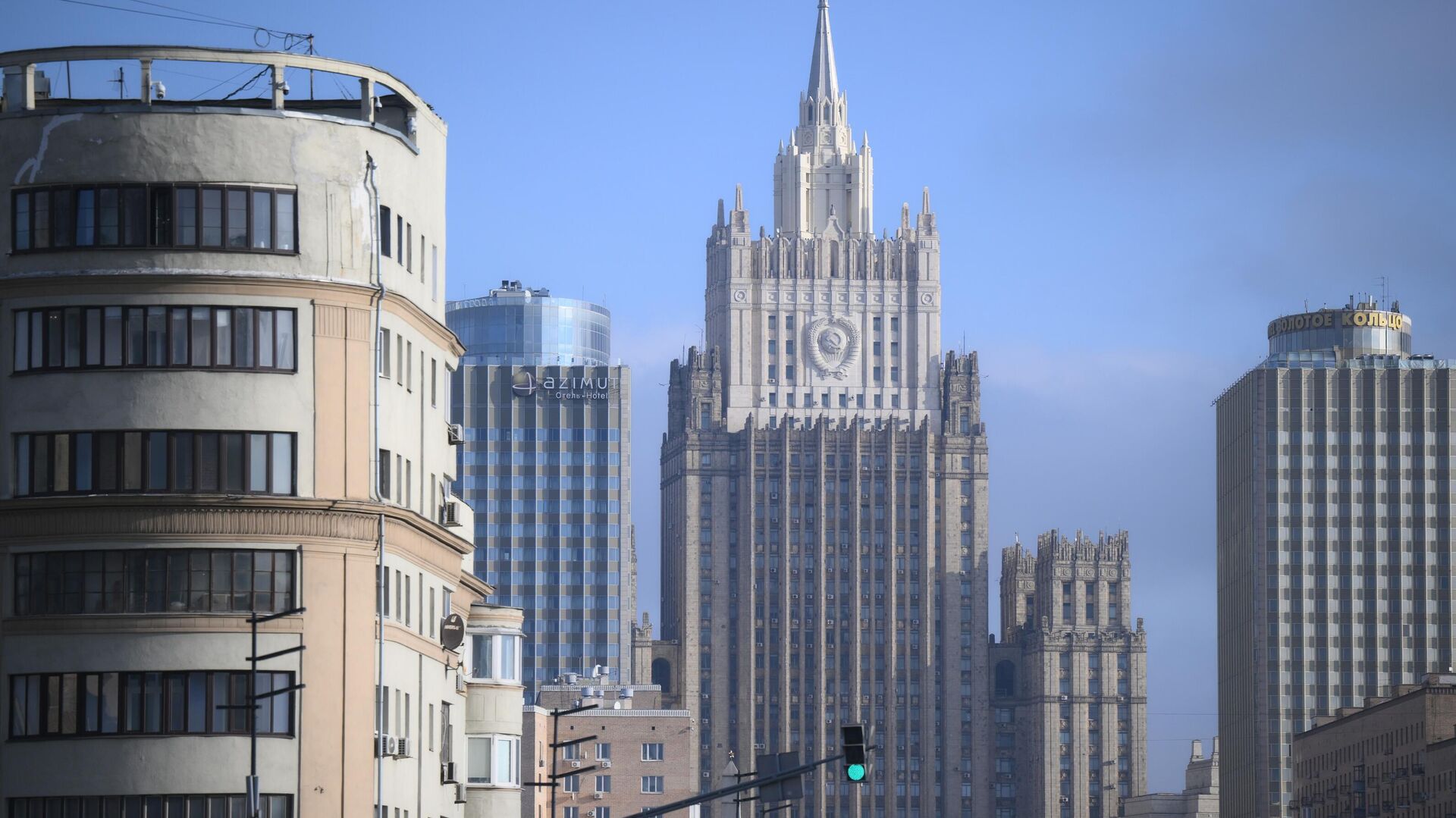https://en.sputniknews.africa/20250623/russia-extremely-negative-about-nato-plans-to-increase-defense-spending-foreign-ministry-says-1074615998.html
Russia Extremely Negative About NATO Plans to Increase Defense Spending, Foreign Ministry Says
Russia Extremely Negative About NATO Plans to Increase Defense Spending, Foreign Ministry Says
Sputnik Africa
MOSCOW (Sputnik) - At the same time, normalization of relations between Russia and NATO cannot be expected even in the long-term due to the alliance's... 23.06.2025, Sputnik Africa
2025-06-23T08:52+0200
2025-06-23T08:52+0200
2025-06-23T08:52+0200
mark rutte
donald trump
russia
moscow
europe
north atlantic treaty organization (nato)
european union (eu)
international
https://cdn1.img.sputniknews.africa/img/07e9/02/06/1070521872_0:111:3181:1900_1920x0_80_0_0_5d7f735484e41fc58153087af6aa1d36.jpg
Russia is extremely negative about NATO's plans to increase defense spending and will continue to take measures to ensure its own security, Russian Deputy Foreign Minister Alexander Grushko told Sputnik. Such a decision, if adopted, will lead to the "transfer of the economy, especially of the European member states, to 'war footing' to the detriment of the social and economic well-being of their citizens," Grushko said, adding that "the process of militarization of the EU will accelerate, the state of security in Europe and globally will worsen even more." Moscow will be ready to respond proactively to NATO's actions targeting Russia's security, including the alliance's plans to ramp up its ballistic missile defense and air defense capabilities, the senior diplomat added. Russia's reaction will depend on emerging threats, the official said, emphasizing that any hostile actions against Russia will be met with countermeasures, including preemptive ones. In March, NATO Secretary General Mark Rutte said that he did not rule out the normalization of the relations of the EU and the US with Russia in the long term. Earlier in June, Rutte called on NATO member states to increase their defense spending from the current 2% to 3.5% of their respective GDPs, and spend another 1.5% on infrastructure development, military industry and other security-related investments. US President Donald Trump previously demanded that NATO allies spend 5% of GDP on defense. In recent years, Russia has noted NATO's unprecedented activity near its western borders. The alliance is expanding its initiatives and calling it "containment of Russian aggression." Moscow has repeatedly expressed concern about the bloc's build-up of forces in Europe. The Russian Foreign Ministry stated that the authorities in Moscow remained open to dialogue with NATO, but on an equal basis, while the West must abandon its course toward militarizing the continent.
russia
moscow
europe
Sputnik Africa
feedback@sputniknews.com
+74956456601
MIA „Rossiya Segodnya“
2025
Sputnik Africa
feedback@sputniknews.com
+74956456601
MIA „Rossiya Segodnya“
News
en_EN
Sputnik Africa
feedback@sputniknews.com
+74956456601
MIA „Rossiya Segodnya“
Sputnik Africa
feedback@sputniknews.com
+74956456601
MIA „Rossiya Segodnya“
mark rutte, donald trump, russia, moscow, europe, north atlantic treaty organization (nato), european union (eu), international
mark rutte, donald trump, russia, moscow, europe, north atlantic treaty organization (nato), european union (eu), international
Russia Extremely Negative About NATO Plans to Increase Defense Spending, Foreign Ministry Says
MOSCOW (Sputnik) - At the same time, normalization of relations between Russia and NATO cannot be expected even in the long-term due to the alliance's aggressive policy and its almost daily statements that Russia remains NATO's main threat, Grushko said.
Russia is extremely negative about NATO's plans to increase defense spending and will continue to take measures to ensure its own security, Russian Deputy Foreign Minister Alexander Grushko told Sputnik.
Such a decision, if adopted, will lead to the "transfer of the economy, especially of the European member states, to 'war footing' to the detriment of the social and economic well-being of their citizens," Grushko said, adding that "the process of militarization of the EU will accelerate, the state of security in Europe and globally will worsen even more."
"So we will evaluate this decision extremely negatively and will continue to take all necessary measures to ensure our security and defense capability," Grushko said.
Moscow will be ready to respond proactively to NATO's actions targeting Russia's security, including the alliance's plans to ramp up its ballistic missile defense and air defense capabilities, the senior diplomat added.
"Rutte claimed the necessity to build up the alliance's ballistic missile defense and air defense capabilities by 400% to 'defend against Russia.' We apparently have to take it as recognition of our armed forces’ might demonstrated during the special military operation. It is hard to say how quickly NATO will implement their plan. The alliance has always experienced difficulties working on improvement of integrated ballistic missile and air defense systems," Grushko said.
Russia's reaction will depend on emerging threats, the official said, emphasizing that any hostile actions against Russia will be met with countermeasures, including preemptive ones.
In March, NATO Secretary General Mark Rutte said that he did not rule out the normalization of the relations of the EU and the US with Russia in the long term.
Earlier in June, Rutte called on NATO member states to increase their defense spending from the current 2% to 3.5% of their respective GDPs, and spend another 1.5% on infrastructure development, military industry and other security-related investments. US President Donald Trump previously demanded that NATO allies spend 5% of GDP on defense.
In recent years, Russia has noted NATO's unprecedented activity near its western borders. The alliance is expanding its initiatives and calling it "containment of Russian aggression." Moscow has repeatedly expressed concern about the bloc's build-up of forces in Europe. The Russian Foreign Ministry stated that the authorities in Moscow remained open to dialogue with NATO, but on an equal basis, while the West must abandon its course toward militarizing the continent.

